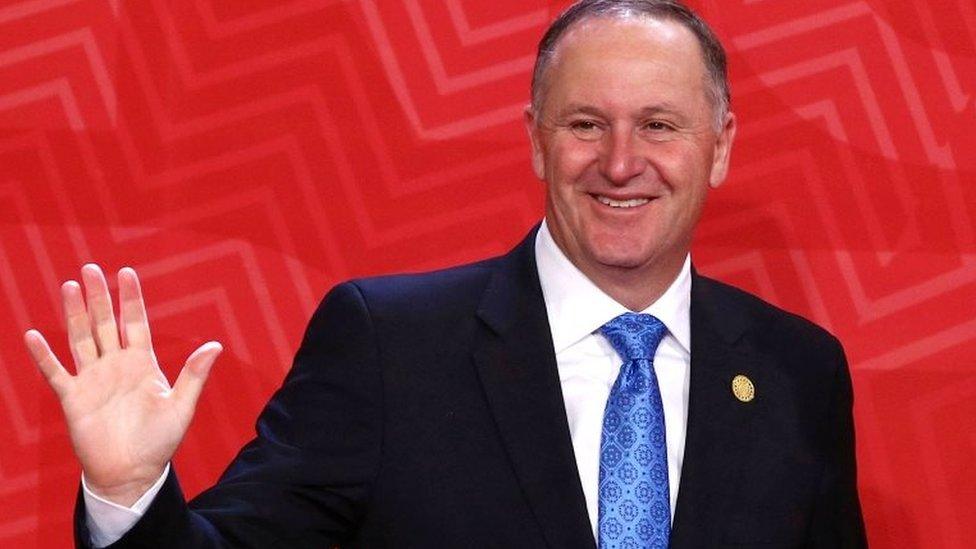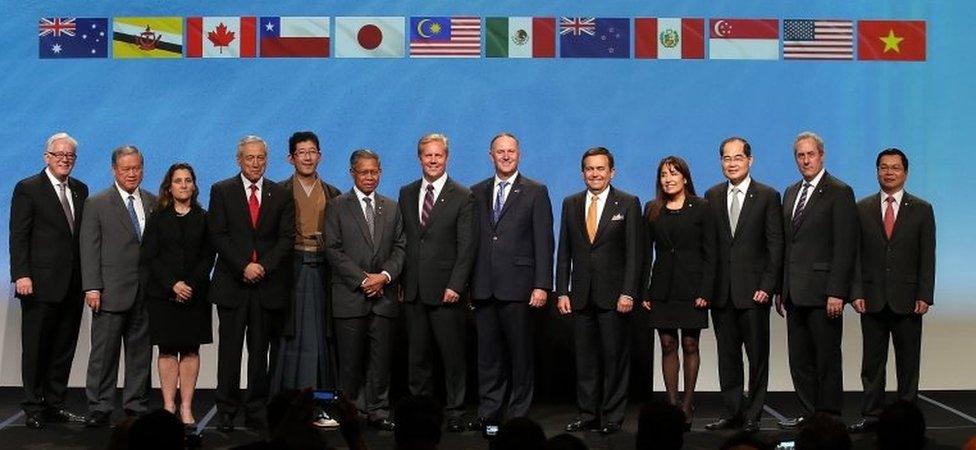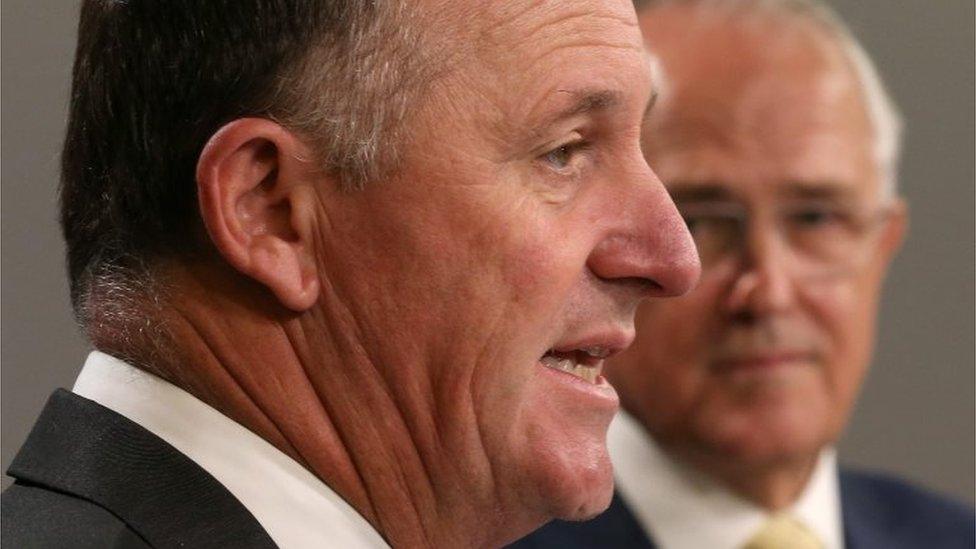Profile: John Key
- Published

From financier to three-term prime minister
John Key, who has announced his resignation as prime minister of New Zealand, made a fortune as a currency trader before returning home to pursue his political ambitions.
At the time critics pointed that with only six years of experience as an MP, he would find it hard to successfully lead the whole country. But he has confounded many of them, proving a highly popular leader, if polarising at times.
He gave his resignation speech, external in his third term and just ahead of an election year where many thought he would seek a fourth term.
Childhood ambition
John Key was born in Auckland, and was brought up by his mother from the age of six after his father died. At school in Auckland he met his wife, Bronagh. They married in their early 20s and went on to have two children.
After training as an accountant, Mr Key became a currency trader in New Zealand, before moving to Singapore and then London.
During a successful, and highly-paid career, he earned the nickname the "smiling assassin" for his ability to remain cheerful while making staff cuts.
His entry into politics may have surprised many, but he said it "fulfilled a long-held ambition" - he has said he had wanted to be prime minister since the age of 10.

Mr Key made a pledge to Christchurch that it would not be forgotten after devastating quakes
He won his first political role in 2002, as MP for the newly created Helensville constituency in Auckland, representing the centre-right National party.
Then in 2008 he led the Nationals to an election win, ending nine years of Labour government and three terms under Helen Clark.
In his second term, he was praised for his handling of the devastating Christchurch earthquakes of 2010 and 2011, promising the city would not be forgotten and would "rise again"., external
Economically, Mr Key's tax-cutting programme is credited with bringing New Zealand out of recession in 2014.
The skill in his early career of being seen to keep a level head in turbulent times served him well in politics.
He became known as "Teflon John" because so little controversy stuck to him, even accusations of the government spying for the US, external, and bizarre incidents like casually referencing his vasectomy in a press conference.

Mr Key's pet project, changing the flag, resulted in much ridicule and a vote for no change
He did, however, have to apologise in 2015 for tugging a waitress's ponytail, an act which saw the opposition accuse him of workplace bullying.
Mr Key's most prominent role on the international stage has been his fulsome support for the Trans Pacific Partnership, a massive regional trade deal, signed in New Zealand in 2016, which would have been hugely beneficial for country.
The TPP has been thrown into uncertainty though by the election of Donald Trump, who has pledged to make taking the US out of the deal the first thing he does on taking office.
While Mr Key has tried to convince leaders, external it could function without the US, a TPP without the US is a major blow for New Zealand's trade aspirations.

The TPP deal was signed in New Zealand before being all-but killed off by the US President-elect Donald Trump
One of Mr Key's biggest personal defeats has been his failure to see through a change in the New Zealand's flag.
He had promised, while campaigning for his third term, to give the country the chance to throw out its existing flag, featuring the Union Jack, saying it was time to sever colonial ties.
But the drawn-out national contest was criticised as being a vast waste of money, and became something of an international joke. The country eventually voted for the status quo.
Analysts say he has forced National into the political middle, accepting Labour policies such as the anti-nuclear law and the deployment of troops to Afghanistan. But his pledge to further lower taxes and get tough on criminal gangs also appealed to voters.

Australia's PM Malcolm Turnbull (R) texted Mr Key a heartfelt "say it ain't so" on hearing the news
During the recent earthquake in New Zealand John Key famously was "too busy" to take a call from Donald Trump, because he was trying to sort out disaster relief, giving a sense of how he was known for rolling up his sleeves and not so worried by diplomatic niceties.
Mr Key had been widely expected to run for a fourth term in 2017, so his resignation, citing family reasons, came as a complete shock to the country and its allies.
He said his job required great sacrifices "from those who are dearest to me" and that his children had coped with "an extraordinary level of intrusion".
His Australian counterpart texted him simply: "Say it ain't so bro."
"What he has been able to do is demonstrate that if you make the case for reform clearly, cogently, persuasively, you can win and retain strong public support for economic reform," said Mr Turnbull.
After announcing his intentions, Mr Key said he had learned that being prime minister required a heavy reliance on instinct and on adapting to new information.
The public, he said "are amazingly forgiving of all of that, as long as you just, they look in your eyes and they believe you".